January 30th, 1972 - Bloody Sunday
It was on a beautiful, sunny, winter afternoon that I, my father Paddy, Liam, a cousin, and I set out on foot from Shantallow for the staging area of the march, up in the Creggan. We were all able walkers and were moving at a good clip up the fairly steep incline that is Rosemount Hill.
As we were striding by the park, we met a British-army foot patrol. The sergeant, waving his rifle as a teacher would a pointer, indicated that he wanted us to stop and stand at a particular spot. We knew the drill. We were spread-eagled against the cold iron perimeter railings of the park. The cold metal reminded me that there was no heat in the low-lying winter sun. We were warm because of the fast pace that we had been maintaining in order to reach the assembly point at the common ground known as the Bishop's Field.
I can still recall the strong smell of waterproofing on the Brit's uniform as he gave me a "rubdown" that was anything but perfunctory. I can still see my father raise his eyebrow in a quizzical manner as this same soldier warned us to be very careful today.
We were now late. When we arrived at the Bishop's Field, the main body of civil-rights marchers had already departed en route for Free Derry corner. We were part of a tardy rear-guard of stragglers who decided to take a shortcut through the city cemetery so that we could more quickly catch up with the rest of our friends and neighbors.
Already, at sixteen years of age, I was a "veteran" of numerous civil-rights marches and numerous active protests, including a stint at the barricades during the Battle of the Bogside in August 1969. Rather ironically, however, Bloody Sunday was the first time that I had actually accompanied my father with his permission. The normal drill was that my father would leave the house for a march. I would give him a few minutes to be on his way, and then I, too, would leave for the same march, being careful of course, not to let him see his first-born at any stage in the proceedings.
ROOFTOP SNIPER
As we walked down William Street, I noticed a Brit sniper walk up towards the apex of the roof of Stevenson's bakery. I commented to Paddy and Liam that even if the Brits wanted to shoot us all today, they wouldn't have enough ammunition, because there was such a large crowd of us.
The first person shot on Bloody Sunday was actually shot by that sniper. John Johnston died about a year later of his wounds.
That said, we were all in good spirits as we moved towards Rossville Street and our final destination of Free Derry Corner. The marchers were bantering in what I regard as a typically Derry way. Everyone knew almost everyone else there-by sight, as they say, if not by name. There was almost a carnival atmosphere, reflective in many ways of the hope, the optimism, the joy inherent in even painful struggle.
Somehow or other, I became separated from my father and cousin. I couldn't see them in the vicinity of the Free Derry Corner, where a truck bed was being used as a platform from which various speakers were addressing the rapidly assembling crowd, so I decided to backtrack to the corner of William Street and Rossville Street to search for them.
A small group of teenage stone throwers and a much larger group of spectators were there. We were a tightly packed crowd, especially in the narrow alley where I was. A British-army water cannon showered us with purple dye. Then, when they shot tear gas, I could not manage to get my hand up to my eyes, such was the crush. I decided it was time to move on.
I was about one-third of the way up Rossville Street when I heard the distinctive sound of rifle fire. Looking back over my shoulder, I could see British paras crossing some open ground. They were running forward, some pausing to shoot, and were sweeping the crowd before them. I crouched over low and started to run. I knew that if I fell, I would be trampled in the forward surge of the crowd.
In a brief, surreal moment, I saw an old man sitting on a low, brick garden wall in Glenfada Park. He was laughing maniacally. Even in the midst of a moment of panic, this scene struck me as particularly and memorably bizarre.
HELPING HAND
I was running for the shelter of a barricade at Free Derry Corner. I had the silly notion that once over the barricade, I would be safe. An Olympic hurdler could not have hopped over that barricade as quickly as I did. No sooner had I reached "safety" than I heard a very plaintive voice, "Oh, son, could you help me? I think my foot is stuck."
Cursing like a trooper to myself, and damning this woman, her seed, breed and generation for being so inconsiderate as to get her foot stuck at such an inopportune moment, I reluctantly remounted the barricade. "Give me your hand, missus!" I yelled as I grabbed her outstretched hand and tugged her free. She was coming with me even if I amputated her foot. I was most certainly not one of those brave souls who risked their lives for others in the middle of the para killing zone. Several civilians were shot for their courageous acts, but thankfully, I was not one of those who lost a family member in the slaughter. I was a scared sixteen-year-old who did everything that he could to stay alive in a situation of utter confusion and carnage.
Suffice it to say that I saw several persons shot that day. I realized instantly that I had witnessed an event that would feature large in Irish history. I knew at a visceral level that I was done begging for my rights. I would rather be scared and armed than scared and empty-handed.
Bloody Sunday was a personal watershed for me, even though I could not realize then how it would unalterably change my life and impact the lives of my future wife and children.
As I recall that event of January 30th twenty-five years later, I know that my current deportation battle is a replay in some ways of that event. Both events are born of the same struggle to live our lives in safety, in justice, and free of British interference. INS wields paper in the same way the Brits wield their guns and clubs. Either way, they both show the same callous disregard for the lives of the deportees and their wives and children. They demean and devalue our right to raise our families in peace.
Don't merely remember Bloody Sunday! Learn from it!
Murdered:
Jack Duddy, 17
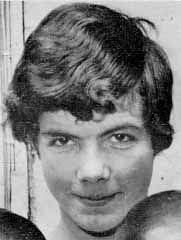
Paddy Doherty, 31
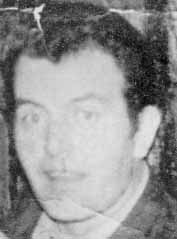
Gerard Donaghy, 17
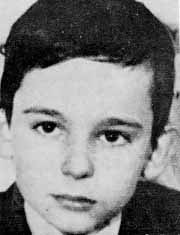
Hugh Gilmore, 17
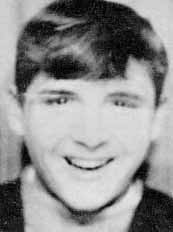
John Johnston, 59
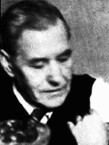
Michael Kelly, 17
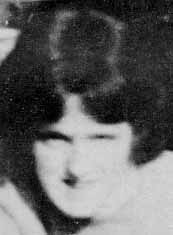
Michael McDaid, 20
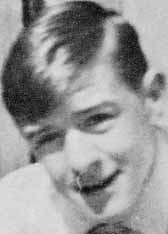
Kevin McElhinney, 17

Bernard McGuigan, 41
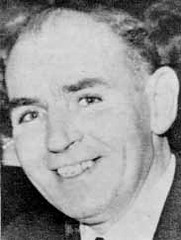
Gerard McKinney, 35
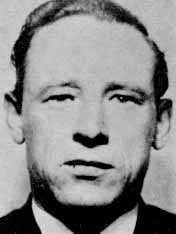
William McKinney, 26
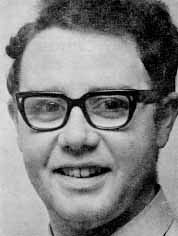
William Nash, 19
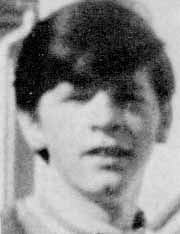
Jim Wray, 22
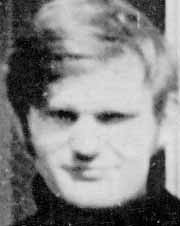
John Young, 17
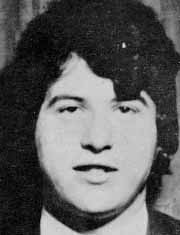
Injured:
Michael Bradley (22)
Michael Bridge (25)
Alana Burke (18)
Patrick Campbell (53)
Margaret 'Peggy' Deery (37)
Damien Donaghy (15)
Joe Friel (20)
Daniel Gillespie (31)
Joseph Mahon (16)
Patrick McDaid (24)
Daniel McGowan (37)
Alex Nash (52)
Paddy O'Donnell (41)
Michael Quinn (17)Click here to watch a short video of Bloody Sunday footage.


0 Comments:
Post a Comment
<< Home